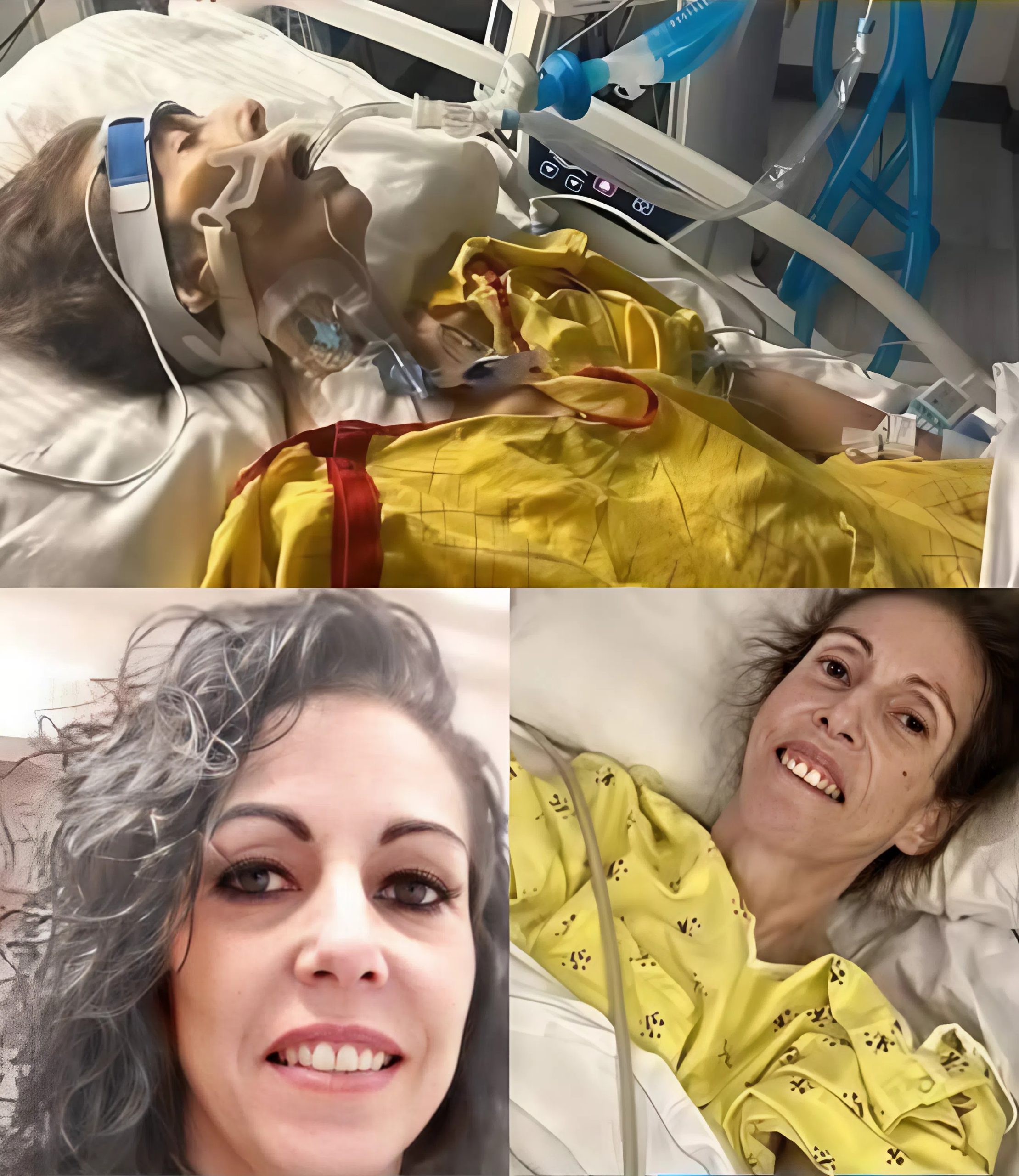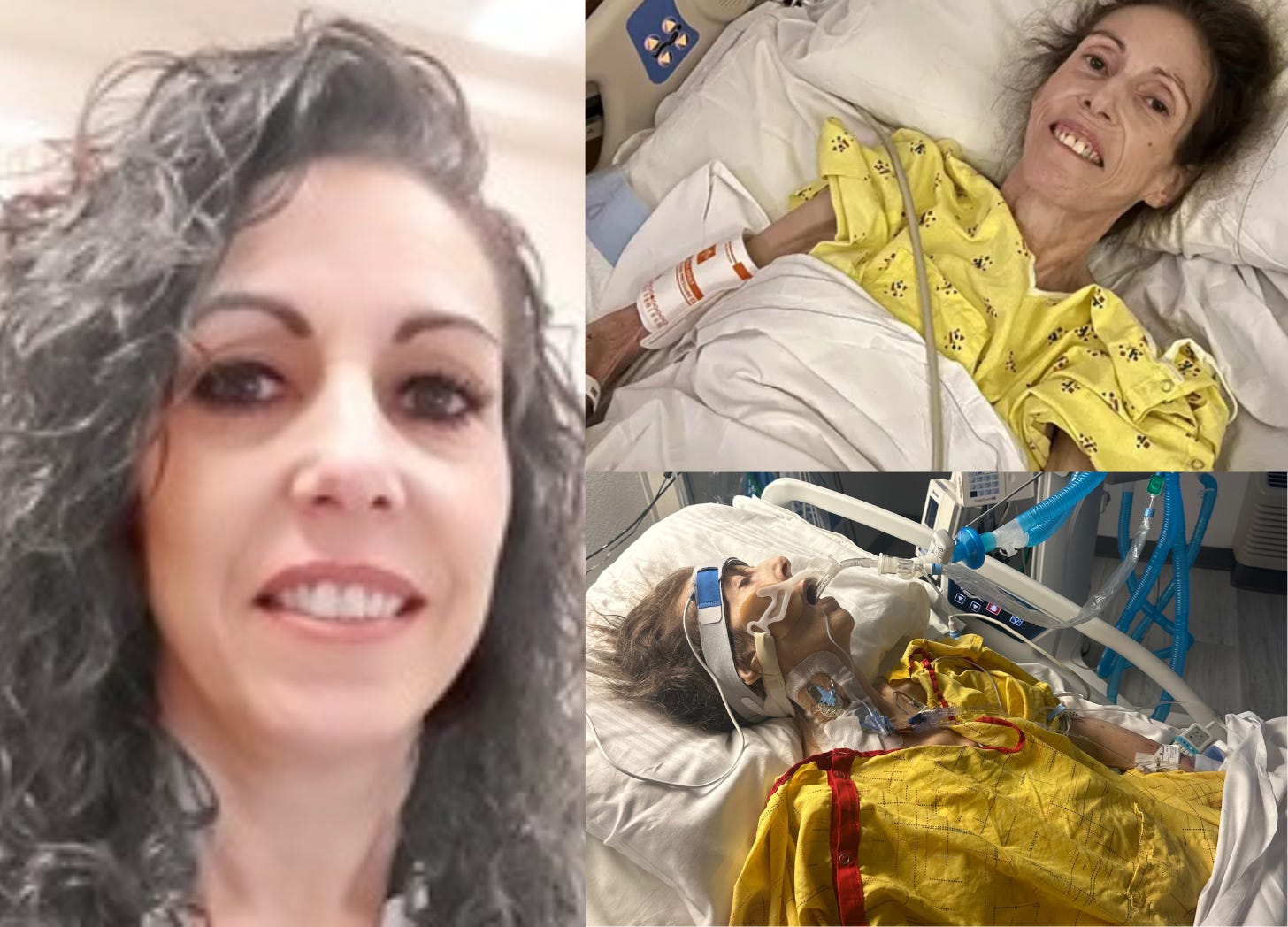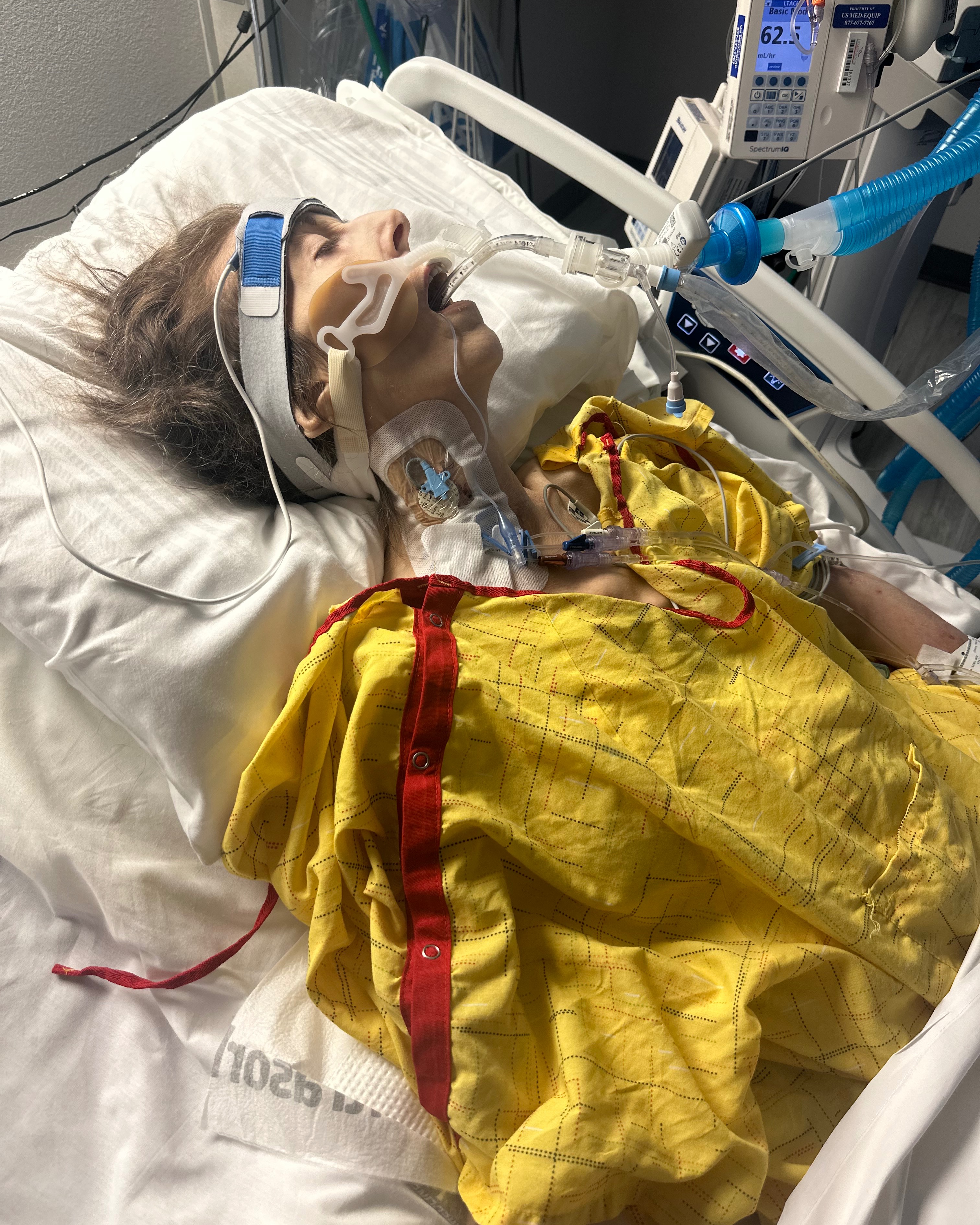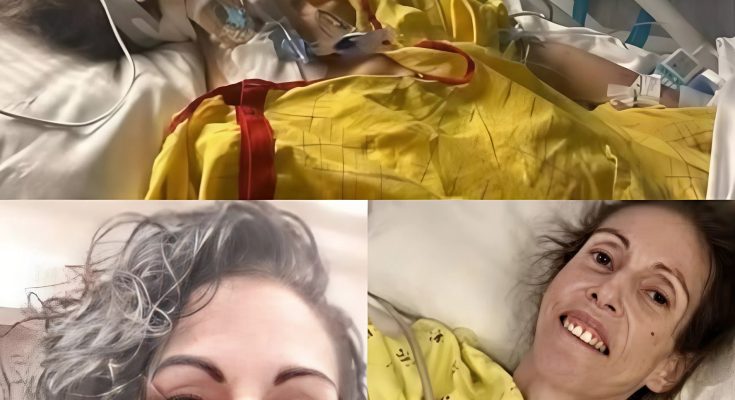In a tragic and complex story that has ignited debates across medical, legal, and political spheres, 38-year-old Michelle Harper of Reno, Nevada, passed away last week after a grueling two-year battle in the hospital following severe complications allegedly linked to the C-19 vaccine. Harper’s death not only leaves a family grieving a mother, wife, and community volunteer, but also exposes the staggering financial, systemic, and ethical challenges embedded in America’s healthcare and vaccine system. Her family faces nearly $7.5 million in medical debt—a sum that has pushed them to the brink of financial ruin.
Michelle Harper’s ordeal began in late 2022 after receiving her second dose of the vaccine. According to her family, she experienced sudden, debilitating symptoms: chronic fatigue, neurological disturbances, severe inflammation, and intense joint pain. What initially seemed like temporary side effects escalated into life-threatening complications. “At first, we thought it would pass,” her husband Daniel Harper recounted. “But every day, it became clearer that our lives were about to change forever.”

The Harper family describes two years of continuous hospitalizations, invasive procedures, and experimental treatments. Specialists in neurology, immunology, and rheumatology were involved in her care, yet even with advanced medical intervention, her condition deteriorated steadily. Doctors reportedly struggled to manage what they identified as a rare autoimmune response, triggered or exacerbated by the vaccine—a phenomenon that, while extremely uncommon, has been documented in isolated medical literature.
Michelle’s battle was both medical and financial. According to documents obtained from the hospital, her care included weeks in intensive care units, multiple surgeries, specialized medications, and rehabilitation therapies. The cumulative cost reached $7.5 million, a figure that far exceeded the Harper family’s insurance coverage. Daniel Harper explained, “We believed insurance would protect us. But no one warned us that two years of medical treatment could consume everything we have and more.”
This financial devastation has spurred broader discussion about the inadequacies of the U.S. healthcare system. Experts note that while the medical community can provide extraordinary care, the financing of prolonged, high-cost treatments remains deeply flawed. Dr. Laura Henderson, a health policy analyst, explained: “Cases like Michelle’s reveal systemic weaknesses. Families can experience catastrophic financial consequences, even when doing everything right. The intersection of rare medical events and rigid insurance structures can be devastating.”

At the same time, Michelle Harper’s story highlights the human dimension of rare vaccine complications. While the Centers for Disease Control and Prevention (CDC) emphasizes that severe reactions to vaccines are statistically rare, experts stress that these outlier cases require careful attention and robust support systems. “It’s crucial to understand that medicine is probabilistic,” said Dr. Anthony Weiss, an immunologist familiar with vaccine-related complications. “Most people experience mild, transient effects, but a very small number may have severe, long-term responses. Our system must be equipped to respond both medically and financially.”
The Harper family has filed a lawsuit against the vaccine manufacturer, citing negligence and insufficient warnings about potential adverse effects. While legal experts caution that such cases are complicated by liability protections under the Public Readiness and Emergency Preparedness (PREP) Act, which shields vaccine manufacturers from most claims during public health emergencies, the case has nonetheless drawn national attention. Patient advocacy groups argue that it underscores the need for reform in compensation mechanisms for vaccine injuries.
Beyond the legal and financial ramifications, Michelle Harper’s story resonates on an emotional and societal level. Her struggle drew attention from her community in Reno, where neighbors, friends, and local organizations rallied to provide emotional support and assistance with basic needs. Vigils were held outside the hospital, where candles, flowers, and handwritten letters symbolized collective grief and solidarity. Her community remembers her as a selfless, caring figure who contributed tirelessly despite her suffering. “Michelle’s compassion never wavered,” said her neighbor Angela Martinez. “Even in pain, she wanted to help others. It’s incomprehensible that her family is now facing financial ruin.”
Healthcare workers involved in her care have also spoken of the emotional toll of prolonged cases like Michelle’s. One nurse, speaking on condition of anonymity, reflected: “You form a bond with patients like Michelle. Watching her fight every day was inspiring, but the limitations of the system—insurance rules, funding restrictions, and bureaucratic red tape—made the fight feel incomplete. We did everything possible medically, but some battles are larger than medicine itself.”

Michelle’s case also sheds light on systemic gaps in post-vaccination monitoring. Critics argue that rare, severe complications are often underreported, leaving families isolated and unprepared. Public health officials acknowledge that while vaccination is critical for preventing disease, rare adverse reactions must be addressed with robust monitoring, patient follow-up, and support mechanisms. Senator Mark Reynolds (D-NV) commented, “Michelle Harper’s story is a tragic reminder that our healthcare system and our safety nets are insufficient for rare but devastating medical events. We owe it to families to strengthen these protections.”
The financial implications are equally sobering. With $7.5 million in bills, the Harper family has lost their home, liquidated personal assets, and seen Daniel Harper’s small business decimated. This raises urgent questions about the intersection of healthcare access, insurance structures, and public health responsibility. Policy analysts argue that catastrophic medical debt remains a major driver of financial instability in the United States, even among middle-class families. “Michelle’s case is extreme, but not isolated,” Dr. Henderson noted. “The system allows even one rare event to push families into bankruptcy. That’s unacceptable.”
Michelle Harper’s death has also sparked widespread online discourse. Social media users express outrage at the financial consequences, while some commentators caution against extrapolating systemic conclusions from a single case. Still, the narrative has amplified calls for transparency, reform, and accountability. Patient advocacy organizations are using the story to lobby for better insurance coverage for long-term medical care, improved post-vaccine monitoring, and stronger support systems for families affected by rare medical complications.
For the Harper children, ages 10 and 7, the loss is both personal and existential. Daniel Harper faces the daunting task of raising his children while navigating bankruptcy and legal battles. “I just want people to understand what happened to Michelle,” he said. “This isn’t political. It’s about one human being who fought as hard as she could and left us with nothing. No one should have to endure this.”
Michelle’s funeral, held last weekend in Reno, drew hundreds of mourners. Friends and family celebrated her courage, empathy, and unwavering commitment to her loved ones. In death, she has become a symbol of both resilience and systemic failure—a reminder that behind every statistic is a human life, a family, and a story of endurance.

Experts suggest that Michelle Harper’s case may catalyze changes in how rare adverse events are handled both medically and financially. Proposed reforms include expanding the National Vaccine Injury Compensation Program (VICP), increasing public awareness of potential complications, and creating specialized funds to assist families facing extraordinary medical costs. These initiatives aim to prevent other families from experiencing similar heartbreak.
Ultimately, Michelle Harper’s legacy is one of courage, perseverance, and selflessness. Her life story, tragic and profound, illuminates the intersections of medicine, policy, and humanity. It is a stark reminder that while vaccines save millions of lives, the system surrounding rare complications must evolve to ensure that no family faces both a health crisis and financial devastation.
As public discourse continues, Michelle Harper’s life—and her two-year battle—serves as a call to action. It demands reflection on healthcare policy, patient advocacy, and societal responsibility. Her story challenges policymakers, medical professionals, and communities to reconsider how we care for those who suffer in ways society does not fully anticipate. For her family, the hope is that her struggle will inspire change, honor her memory, and provide support to others who may face the unthinkable.
Michelle Harper may be gone, but her story remains a testament to human resilience, the urgent need for systemic reform, and the enduring question of how we value both life and human dignity in an era defined by extraordinary medical innovation.


